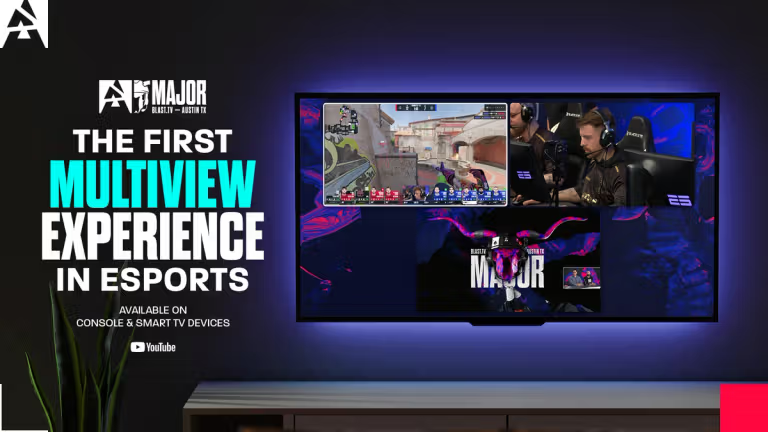
Why esports scholarships hold the future for competitive gaming
A growing number of universities and colleges in the UK and US are now offering special scholarships and courses in esports. These are designed to help young people successfully launch careers in the rapidly developing competitive gaming world. Whilst video gaming has long been dismissed as pure entertainment, the overwhelming popularity of esports has mean that many young people are now viewing competitive gaming as a valid career move.

© NACE
As a result there has been a 480% growth in US college scholarships for esports in the past year, and similarly, many more esports courses have been implemented in the UK. All of which points to a growing level of seriousness with which educational bodies now treat competitive gaming. With the esports industry expecting to top $180 billion by 2021, it’s clear that this is becoming an increasingly important field of work. So how could an esports scholarship supercharge your competitive gaming fortunes?
A quick look at an American esports scholarship
The University of Missouri recently became the latest in a long wave of American colleges to enter the esports fray. By becoming a member of the National Association of Collegiate Esports, the university will hope that their students will get to take part in college-level gaming tournaments in order to boost their gaming prowess.
Plans are already afoot for Missouri students to practice and compete in esports titles like Overwatch and League of Legends next autumn. But it’s the fact that the university is launching an ambitious esports scholarship program that might make Missouri a big attraction for many young gaming fans.
The University of Missouri has stated that it will convert classrooms into gaming practice spaces, coach offices and online streaming rooms. In addition to this, it’s hoped that the university will be able to provide a nurturing environment for any student who enrols on the esports scholarship so that they can develop their skills in a way that is free of the toxicity that has blighted competitive gaming in the past.
Above all, by making esports a central part of the college’s features, the University of Missouri will be hoping to make their educational establishment much more attractive in the eyes of any students wishing to further their education. Whilst traditional sports scholarships for the likes of American football have carried out this function in the past, with esports expecting to be watched by over 300 million people in 2020, it’s clear that gaming has become increasingly powerful.
Does the UK have esports study courses?
It’s not just US colleges that have realised that there’s a need for educational esports programmes, as many UK universities have also set up their own competitive gaming courses. Staffordshire University recently hit the headlines when they announced that they would be introducing the first esports degree in the UK. This promises to provide an educational framework for understanding esports culture, and it would also provide full access to what they have labelled as a ‘pro gamer training facility’.
2017 saw the legendary esports organisation ESL announcing an education partnership with the University of York that would aim to further the teaching and research of competitive gaming. This followed on from ESL’s partnership with the University of Leicester, whilst the University of Roehampton launched their own esports scholarship earlier this summer.

© ESL
Even iconic educational establishments like the University of Oxford have taken their first tentative steps in the esports realm. This was seen when the Chinese multinational brand Tencent teamed up with the university to offer courses and host tournaments which is hugely important as Tencent own Riot Games who produce the iconic esports title, League of Legends.
The rush to provide support for ambitious gamers
It may seem surprising to find such a wide range of universities and colleges that are rushing to put on their own esports scholarships. But as all of these educational bodies have to compete in order to attract sufficient quantities of promising young students, it becomes clear that esports could start to play a much larger role.
All over the world, many governments are starting to take esports a little more seriously. From the Chinese government authorising the development of the first ‘esports town’ in Hangzhou, to Argentina’s first tentative steps to set up interstate leagues in the nation’s colleges and high schools, it seems that there’s plenty to be gained from helping young gamers achieve their true potential.
Such moves mark a rapid change in the way that esports has been perceived across the world. Whilst there was initially plenty of scepticism about competitive gaming when it first emerged, the fact that traditional sporting bodies are getting involved has helped esports gain an extra level of legitimacy. And with the prospect of being able to go to university to study video games, it seems that the future of esports is looking bright.












